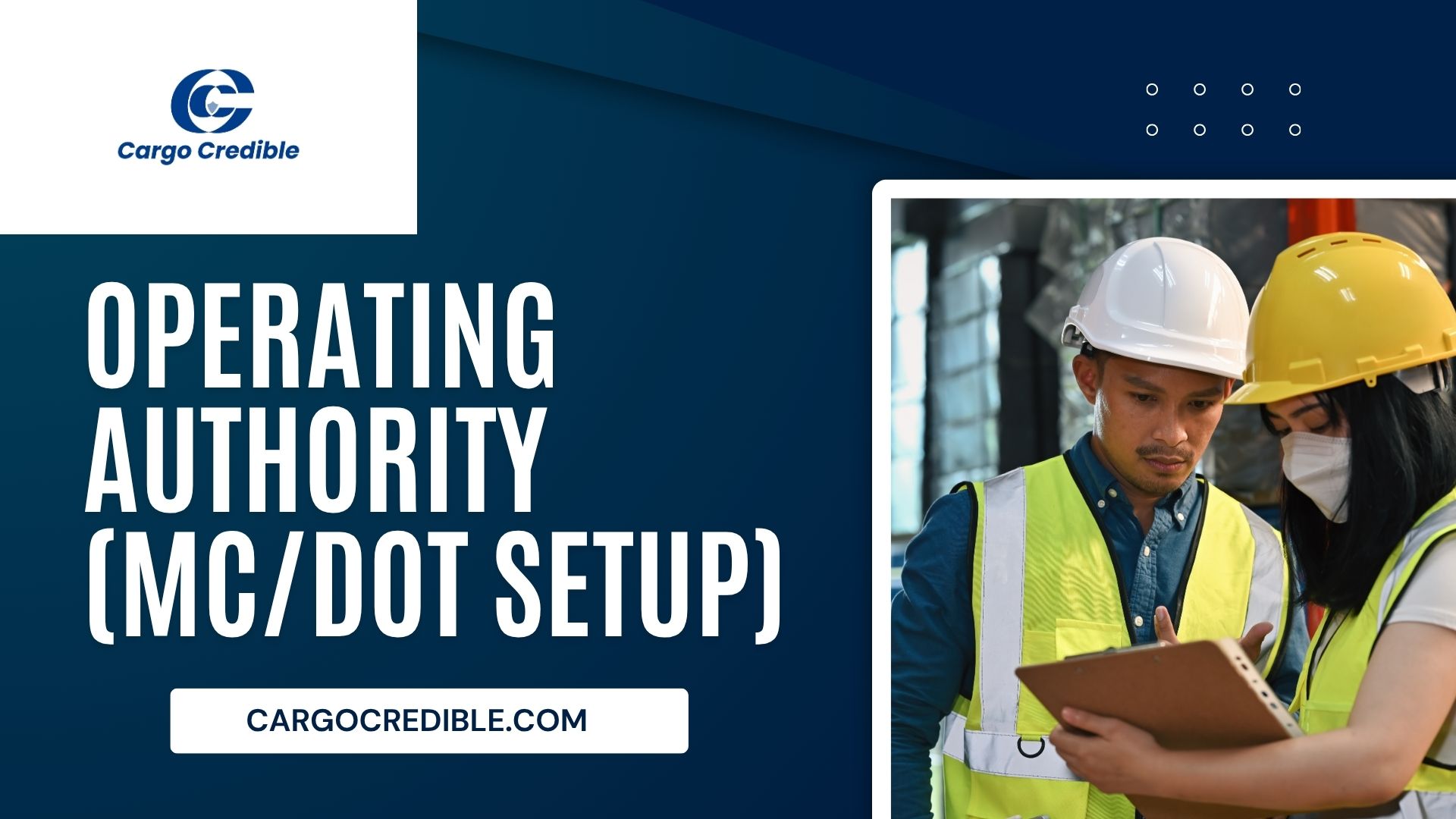Operating Authority: A Comprehensive Guide for Carriers, Brokers, and Industry Stakeholders

Introduction
Operating Authority is one of the most essential regulatory requirements for businesses engaged in the interstate transportation of passengers or federally regulated freight within the United States. Supervised by the Federal Motor Carrier Safety Administration (FMCSA), operating authority defines the scope of operations a company may legally perform. Traditionally identified by MC, FF, or MX docket numbers, this authority is now undergoing modernization. Beginning in October 2025, FMCSA will transition toward linking all operating authority directly to a company’s USDOT number, using suffixes to define operation types. This shift aims to simplify registration, reduce fraud, and improve safety oversight across the entire trucking and logistics industry.
FMCSA Identifiers: USDOT Number vs. MC Number
The USDOT Number is a federal identifier required for nearly all commercial motor vehicle operations involved in interstate commerce or transporting passengers or hazardous materials. FMCSA uses this number to track safety, crash data, inspections, and regulatory compliance.
The MC Number, or Operating Authority, grants permission to transport regulated commodities or to arrange the movement of freight for compensation. While private carriers may operate with only a USDOT Number, for-hire carriers, brokers, and freight forwarders must also obtain MC authority. Both identifiers are registered, managed, and updated through the Unified Registration System (URS).
Types of Operating Authority
FMCSA issues multiple types of authority depending on company operations:
• Freight Forwarder (MC-FF): Arranges transportation using other carriers while managing freight consolidation.
• Broker (MC-B): Coordinates the transportation of property through for-hire carriers without owning equipment.
• Mexico-Domiciled Carrier (MC-MX): Required for Mexico-based carriers operating within the U.S.
• Common Carrier (MC-C): Provides transportation services to the general public.
• Contract Carrier (MC-R): Transports goods for select shippers under exclusive contracts.
Correct classification ensures compliance with insurance, liability, and operational requirements.
Obtaining Operating Authority: Step-by-Step Guide
1. Identify Your Business Type: Determine whether you will operate as a carrier, broker, freight forwarder, or specialized service provider.
2. Register in the Unified Registration System (URS): Create a Login.gov account to begin the registration process.
3. Obtain a USDOT Number: Submit the MCS-150 form through URS. This number must be issued before applying for MC authority.
4. Apply for Operating Authority: Submit your application specifying the authority type that aligns with your business.
5. File Form BOC-3: Designate a legal process agent in each state of operation. This filing must be completed by an authorized service provider.
6. File Insurance with FMCSA: Insurance providers must submit BMC forms demonstrating proper liability and cargo coverage. FMCSA cannot activate authority without these filings.
7. Protest Period: A mandatory 10-business-day window allows objections to be filed, though such protests are rare.
8. Activation of Authority: Once insurance and BOC-3 filings are confirmed, authority becomes active.
Financial Requirements and Insurance Obligations
Companies seeking operating authority must budget for mandatory expenses:
• Application Fee: $300 per authority type.
• BOC-3 Filing: Typically $50–$75 for nationwide coverage.
• Insurance Requirements: Liability coverage begins at $750,000 for most property carriers and increases significantly for hazmat or passenger carriers.
• Broker/Freight Forwarder Surety Bond: A $75,000 bond is mandatory to protect carriers and shippers.
Recent and Emerging Regulatory Trends
FMCSA has intensified oversight in response to fraud, safety issues, and double-brokering. Key regulatory developments include:
• Broker Transparency Rules requiring proof of bond and documentation upon request.
• Strengthened New Entrant Safety Audits to verify compliance within the first year.
• Drug & Alcohol Clearinghouse enforcement requiring mandatory driver queries.
• Increased insurance scrutiny from shippers demanding higher cargo and liability coverage.
Common Application and Compliance Pitfalls
Applicants frequently encounter delays or rejections due to:
• Missing insurance filings or incomplete BOC-3 submissions.
• Failure to complete the required biennial MCS-150 update.
• Incorrectly identifying commodities or business classifications.
• Allowing insurance policies to lapse, leading to automatic suspension of authority.
Post-Authorization Responsibilities
Maintaining active operating authority requires ongoing compliance, including:
• Biennial MCS-150 updates, regardless of operational changes.
• Maintaining continuous insurance coverage.
• Annual Unified Carrier Registration (UCR) filings.
• Adherence to safety regulations, hours-of-service laws, and equipment maintenance.
Failure to meet these obligations may result in fines exceeding $10,000, suspension of authority, or out-of-service orders.
Targeted Insights by Industry Segment
Carriers & Drivers: Understand the true cost of authority, especially in lease-to-own or carrier leasing arrangements.
Brokers & Shippers: Always verify authority status in FMCSA's SAFER system before tendering freight.
Compliance & Insurance Providers: The growing demand for bundled registration and compliance services presents significant business opportunities.
Researchers & Journalists: Monitor market trends such as authority revocations, double-brokering incidents, and the impact of Clearinghouse violations.
Conclusion
Operating Authority is a foundational requirement for lawful interstate commerce in the transportation industry. As FMCSA transitions toward USDOT-linked authority with simplified structures and enhanced fraud prevention, carriers and stakeholders must stay informed and compliant. Understanding how to properly obtain, maintain, and verify operating authority is essential for safe, legal, and competitive participation in today’s evolving freight environment.
Comments (0)
- No comments yet.